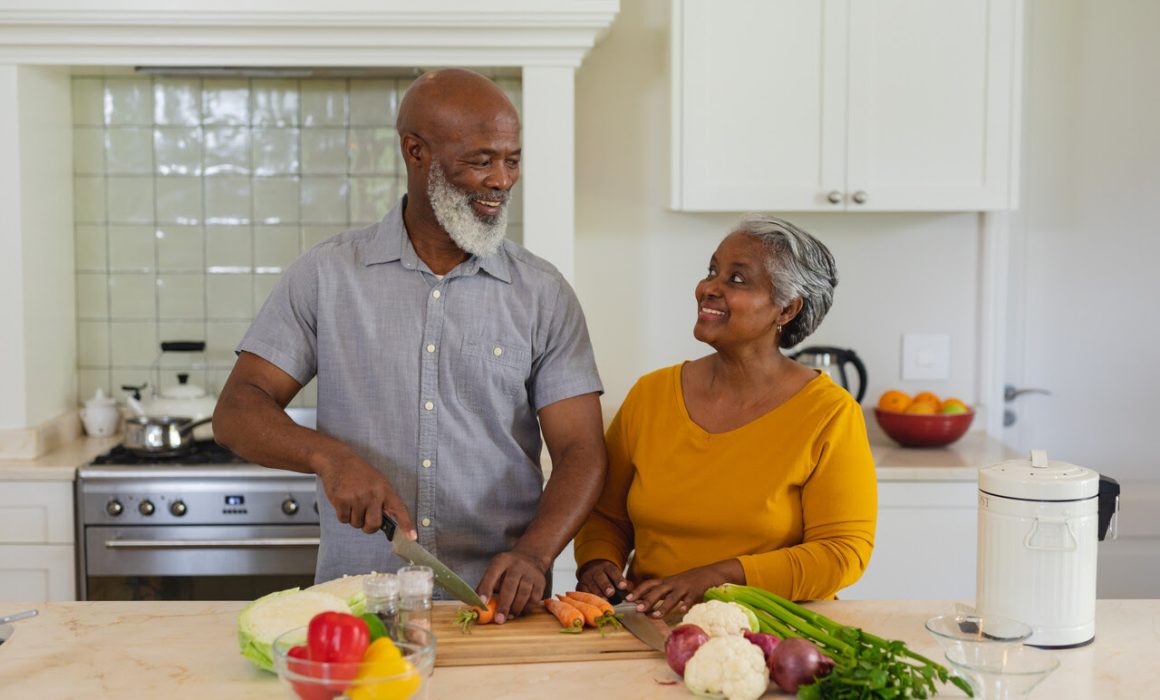Healthy Living Tips for Older Adults
Leading a healthy lifestyle is always wise but becomes especially important as you age. Beyond supporting overall well-being, older adults and seniors who prioritize health can prevent illness, reduce their risk of injury, and better manage chronic conditions, helping them enjoy a higher quality of life.
To help you and your aging loved ones feel their best and lead healthier lives, The New Jewish Home’s specialists, therapists and nutritionists share valuable advice on several topics, including fitness, nutrition, and more. Read on for healthy aging tips that’ll help you improve your physical and mental wellness.
Create an Exercise Routine
Older adults should focus on these three key areas when creating an exercise routine, including:
Cardiovascular training
Cardiovascular exercise, or cardio, is physical activity that elevates your heart rate and increases oxygen consumption, strengthening your heart and lungs. Regular cardio exercise can improve circulation, lower cholesterol and blood pressure, and reduce the risk of heart disease – making cardio a key element of a complete exercise program.
Common cardio workouts include jogging, brisk walking, swimming, and cycling. Speak with your doctor about developing an effective cardio program or visit The New Jewish Home’s adult day care program for health monitoring services that can support your heart health.
Strength training
Seniors and older adults are at higher risk for developing osteoporosis, a condition that makes bones fragile and more likely to fracture. Thankfully, strength training can help. Not only does it improve bone density, but it also builds muscle, improving your ability to complete daily tasks with greater independence.
Some of the best strength exercises for seniors include bodyweight exercises that use your own weight for resistance, reducing the need for any extra equipment. If you’re new to strength training, remember to start slow. Modified exercises like standing wall push-ups, chair squats, or planks on your knees can help you build strength over time without overexerting yourself.
Balance training
Actively working on your balance can increase your mobility and prevent falls. Practicing yoga poses such as tree or warrior poses can improve your stability and strengthen your core. You can also try simpler exercises like standing on one leg or heel-to-toe walking. Ideally, balance workouts should be performed with a partner who can spot you.
Remember, exercising is not one-size-fits-all. Always consult a medical professional before starting a new exercise program to ensure safety. If you’re new to exercise, start slow and gradually build intensity over time.
Eat Healthy
They say you are what you eat – and eating a healthy, nutritious diet can help you feel energized and supports healthy weight, immune function, and more. Here are some essential nutrients older adults and seniors should incorporate into their diets:
Want more tips for a healthy diet? Our nutritionists prepared these nutritious and delicious meal ideas for older adults and seniors – complete with recipes for breakfast, lunch, and dinner.
Stay Social
Friendships and social connections enhance our overall well-being, improving our mental and emotional health and fostering a sense of purpose and belonging. But older adults, especially ones who’ve left the workforce, lost a loved one, or have an illness or disability, can experience feelings of isolation and loneliness.
You can create fulfilling social connections by joining local clubs, volunteering, attending community workshops or hobby groups, and using social media and technology to connect with others. At The New Jewish Home, our adult day care program offers social and therapeutic services to combat isolation and enhance well-being.
Get Your Rest
Good sleep can improve cognitive function, mood, and energy. While everyone requires the same 7 to 9 hours of sleep, sleeping disorders can disproportionately impact older adults and seniors, making it difficult for them to get adequate sleep.
If you’re struggling to get good sleep, here are a few tips to help:
- Create a consistent sleep schedule where you go to bed and wake up at similar times each day.
- Develop a bedtime routine to signal to your body that it’s time to sleep. Try reading a book, listening to calm music or journaling.
- Don’t use electronics before bed; the blue light impacts melatonin production and makes it harder to fall asleep.
- Avoid caffeine and stimulants late in the day; they increase alertness and decrease drowsiness, making it harder to fall asleep.
Schedule Regular Health Screenings
Annual physicals and health screenings allow your doctor to monitor existing health conditions and can help identify potential issues earlier. Early detection enables your doctor to intervene and treat conditions sooner, which can improve outcomes and your quality of life. Common tests, exams, and screenings older adults and seniors should schedule include:
- Blood pressure and cholesterol tests
- Diabetes screenings
- Screenings for colon, breast, and prostate cancers
- Bone density tests
- Vision and eye exams
- Hearing tests
Healthy Aging at The New Jewish Home
At The New Jewish Home, we have a proud legacy of improving healthcare for older adults and empowering them to live with purpose and enhanced well-being. We’ve been around since 1848 as one of the nation’s first nursing homes, and now serving older New Yorkers of all backgrounds through a portfolio of healthcare services, including post-acute care and rehabilitation, skilled nursing, adult day care, assisted living, and at-home care. See how we continue to elevate healthcare for older adults through our Research Institute on Aging.

